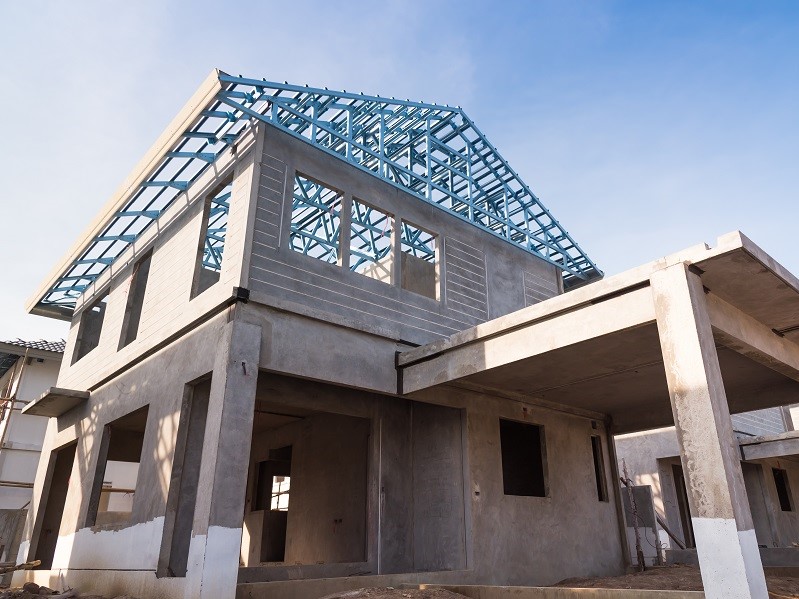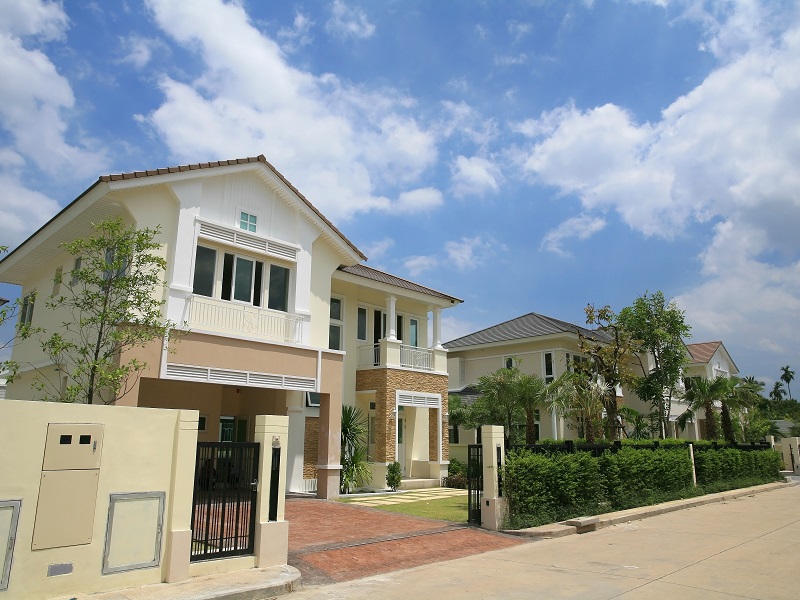
The Reasons Why Thai People Prefer Having Fences Surrounding Their Property.
Feature Image: Houses in gated community with their own fences surrounding each plot. Photo from shutterstock by Blanscape
Thailand, with its rich cultural heritage and vibrant traditions, is a country where the practice of erecting fences and walls to mark property boundaries is deeply ingrained. Unlike in many Western nations, where open spaces and interconnectedness between neighbors are often valued, Thai people have tendencies for enclosed space for homes and properties with physical barriers. This distinctive cultural phenomenon raises the question: Why do Thai people have such a preference for fences and walls? In this article, we explore the cultural contexts that shed light on this common practice in Thailand.
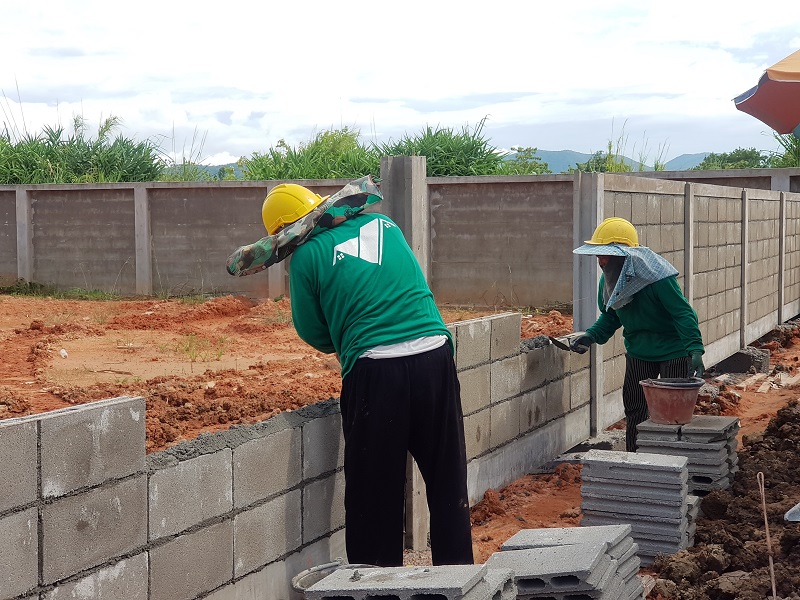
Cultural Tradition: Privacy and Personal Space
A key factor behind the prevalence of fences and walls in Thailand is the cultural value placed on privacy and personal space. Thai society prioritized having a designated area where individuals can retreat from the outside world and find solace within their domain. Erecting a fence or wall serves as a tangible means to define and protect one’s personal space, creating a clear separation between the private and public realms. This emphasis on privacy is deeply ingrained in Thai culture and contributes to the prevalence of enclosed properties.
Land Ownership and Disputes
Thailand’s complex system of land ownership and frequent land disputes is other significant aspect contributing to the prevalence of fences and walls. With a high population density and limited available land, property boundaries can often be ambiguous and subject to encroachment. Erecting a fence or wall helps mitigate these conflicts by providing a visible and indisputable marker of one’s property line. The physical presence of a boundary serves as a proactive measure to prevent potential disputes and legal conflicts, thus offering a sense of security and assurance to property owners.
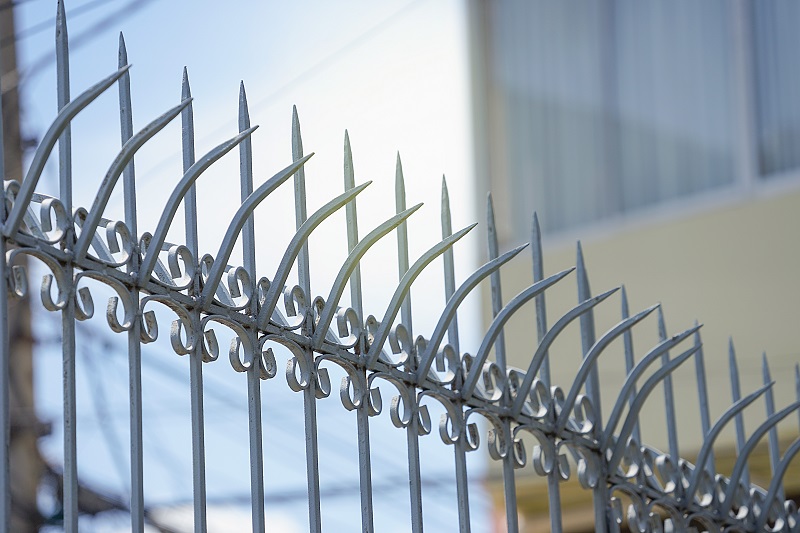
Security and Protection
Fences and walls are also considered vital security measures in Thailand. Just like in any other country, theft, and vandalism are concerns that property owners face. By installing barriers around their homes and properties, Thai individuals aim to create a obstruction for potential intruders and safeguard their belongings. These physical barriers serve as a protective shield, help keep unauthorized individuals out, and reinforce a sense of security for the inhabitants within. A fenced-off property can alleviate concerns about crime and enhance peace of mind.
Social Status and Symbolism
In some instances, the size and quality of a fence or wall can carry social connotations and serve as a status symbol. Within Thai society, people display their wealth and social status through the outward appearance of one’s property. A substantial and well-maintained fence or wall can signify prosperity and success. It communicates that the property owner has the means to invest in their land, enhancing their reputation and social standing within the community. This existence of fence and wall construction highlights the intersection between cultural values, material wealth, and social hierarchies.
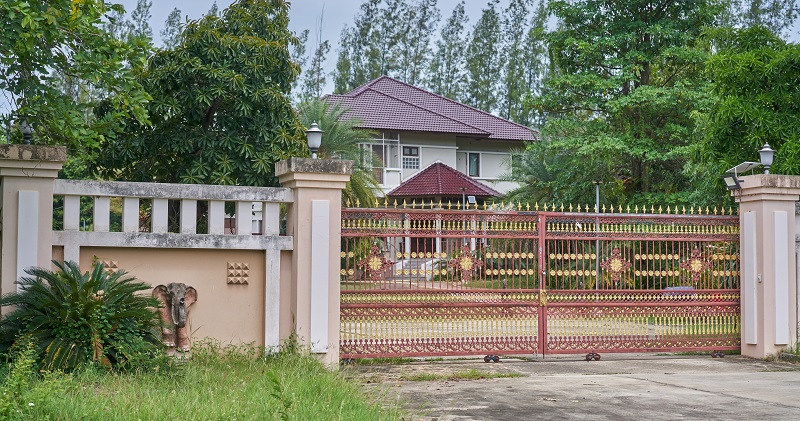
Gated Communities: An Extra Layer of Exclusivity
Even in gated communities, where all houses are preserved from harm by shared walls, the individual property boundary is still prevalent. This additional layer of fences within the confines of a gated community exemplifies the Thai desire for privacy and exclusivity. Each property within the development is divided by its fences or walls, reaffirming the personal space boundaries. This practice serves as an additional assurance of privacy and security, providing residents with an enhanced sense of seclusion and control over their living environment.
The Debate: Connection versus Division
While the prevalence of fences and walls in Thailand serves various practical purposes and is deeply rooted in cultural contexts, it is not without its critics. Some argue that the physical barriers create a sense of division and hinder neighborly connections and community building. Some people may concern that the proliferation of fences and walls can impede social interaction, contributing to a fragmented sense of communal belonging. Additionally, others express the viewpoint that the prevalence of these structures can create a visually cluttered and enclosed urban landscape.

Despite these concerns, the tradition of marking property boundaries with fences and walls continues to thrive in Thailand. It is an integral part of the country’s cultural fabric, reflecting the values and priorities of Thai society. The emphasis on privacy and personal space, the need to avoid land disputes, the desire for security, and the symbolic significance of social status all contribute to the widespread practice of enclosing properties. As Thailand continues to evolve, it would be intriguing to see how these cultural contexts interact with changing societal dynamics.
In conclusion, the prevalence of fences and walls in Thailand is a cultural phenomenon deeply rooted in the values and traditions of Thai society. It serves as means to establish privacy, resolve land disputes, enhance security, and symbolize social status. While it may present challenges of neighborly connections and visual aesthetics, it remains an integral part of Thai cultural identity. Understanding these cultural contexts provides valuable insights into the motivations behind Thai people’s preference for enclosing their homes and properties.

